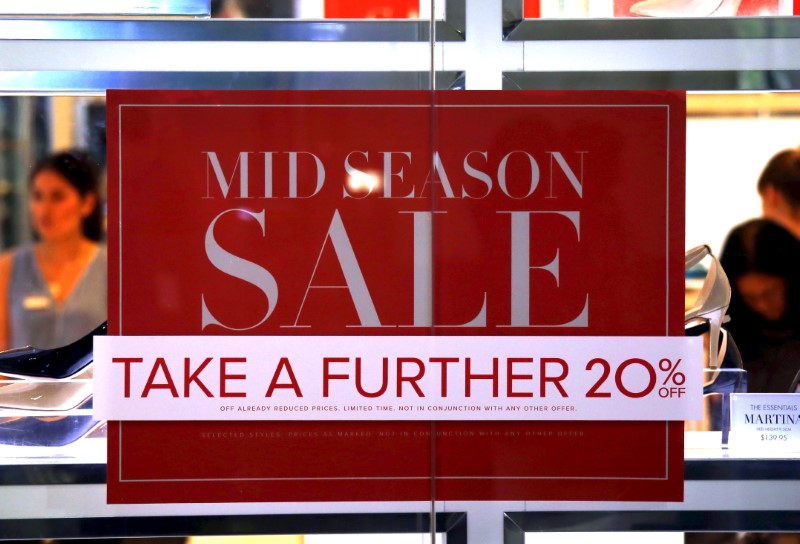 © Reuters. Shoppers look at items inside a retail store in central Sydney, Australia
© Reuters. Shoppers look at items inside a retail store in central Sydney, AustraliaSYDNEY (Reuters) – Australian consumer prices rose by less than expected last quarter while core inflation stayed below target for almost a second full year, leading investors to pare back the already slim chance of a rate hike for months to come.
The local dollar slid as the consumer price index (CPI) rose 1.8 percent for the year to September, below market forecasts of 2.0 percent.
Underlying inflation averaged around 1.85 percent, again missing estimates and actually a touch slower than in the second quarter.
This was the seventh straight quarter that core inflation has undershot the Reserve Bank of Australia’s (RBA) long-term target band of 2 to 3 percent, reinforcing the case for keeping interest rates at current record lows of 1.5 percent.
The Australian dollar
Interbank interest-rate futures eased as investors further pushed out the likely timing of any hike. A rise in rates is now not fully priced in until November next year.
The Australian Bureau of Statistics reported its headline CPI rose 0.6 percent in the third quarter, from the second quarter when it edged up just 0.2 percent.
That missed market forecasts for a 0.8 percent increase, with vegetables, petrol and telecoms all falling in price.
Energy prices saw the single biggest increase, rising 8.9 percent in the third quarter and adding 0.25 percentage points to the overall increase in CPI.
The inexorable rise of electricity costs is largely a function of market failure and has become a major political headache for Prime Minister Malcolm Turnbull.
After months of prevarication, the government recently outlined a plan for a national energy guarantee that essentially put the onus on utilities to fix the problem.
So far, the plan has been long on aspirations and short on detail and analysts suspect energy prices will continue to rise in the near term.
Yet that trend is seen as more of a tax on consumer spending than a sign of overheating demand, greatly lessening the need for an interest rate response by the RBA.
Indeed, policy makers have repeatedly stressed they will look through the impact of energy on inflation and that any move in rates is still “some time” away.
Fusion Media or anyone involved with Fusion Media will not accept any liability for loss or damage as a result of reliance on the information including data, quotes, charts and buy/sell signals contained within this website. Please be fully informed regarding the risks and costs associated with trading the financial markets, it is one of the riskiest investment forms possible.
Source: Investing.com


























